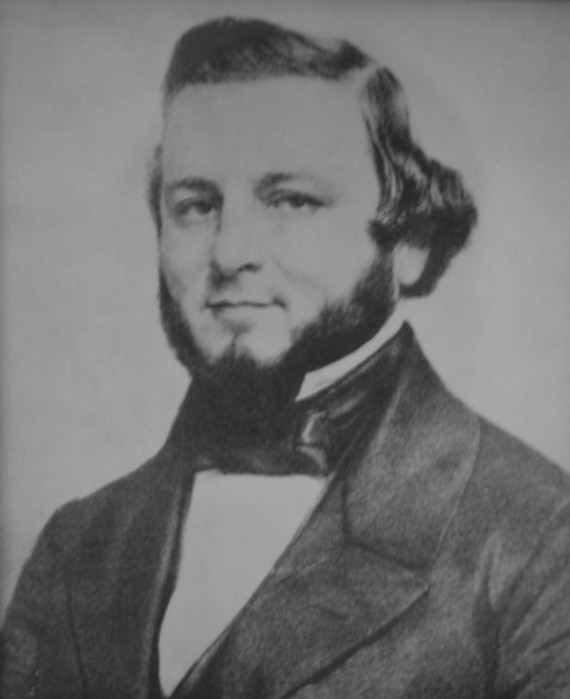One of the most absurd claims heard today is that the South’s defense of “States Rights,” was only a defense of the ”right to own slaves.” This is a claim from extreme ignorance of the South’s Jeffersonian philosophical tradition. A philosophical tradition that prevailed at the founding where tension existed between those who wanted the Union to be a centralized nation State, and those who wanted a decentralized confederation of sovereign States. The South wanted a government where the States were the principal sovereigns, and the general government was their mere agent for their common good. The latter prevailed because the colonists had just fought a war to escape centralized tyranny. The diversification of power among the various States, who reserved to themselves the mass of powers, delegating to the general government only a few enumerated and well-defined powers, was the determined guard against centralized tyranny.
All this was stood on its head by Lincoln’s use of force at the bequest of his powerful Northern supporters who saw that the North’s population advantage could be used to control the House of Representatives enabling legislation to be passed that would benefit the industrial North economically to the detriment of the agricultural South. This made the territories a critical element in the determination of ultimate political control. If States formed there were populated with pro-North settlers, they would form pro-North States committed to Northern economic protectionist principles, giving the North absolute control of both the House and Senate and therefore economic exploitation of the Union.
For this reason the North leveraged opposition to slavery in the territories as a means of keeping many Southerners from settling there and forming Southern allied States. Twenty five percent of Southerners owned slaves. The vast majority of which owned less than five “house” slaves used for domestic duties and sustenance farming (see Time on the Cross, by Fogel and Engerman). Plantation slave owners would never move to the territories because the climate was not conducive to slave produced staples. But they represented only five percent of slave owners. Deterring the remaining twenty percent from settling in the territories, and perhaps thereby their non-slave owning friends and family, would go a long way in guaranteeing States formed there would be allies of Northern economic and racial interests. For antislavery in the North had more to do with coalescing the anti-black racism of Northerners into a voting bloc, than it did any moral concern for the well-being of slaves. And so Northern politicians frightened Northerners into voting against a “Slave Power” that allegedly wanted to spread black flesh all over the country. They disguised this political and racist ambition by expressing abstract moral platitudes of being against slavery as a violation of natural rights. But men like Lincoln’s Secretary of Treasury Salmon Chase spilled the political ambition beans, “I do not want to have the slave emancipated because I love him, but because I hate his master” (letter to W.D. Chadwick 11/8/1858). And the Republican who initiated the political campaign to keep slavery out of the territories spilled the racist beans:
“I make no war upon the South nor upon slavery in the South. I have no squeamish sensitiveness upon the subject of slavery, nor morbid sympathy for the slave. I plead the cause of the rights of white freemen.” Pennsylvania Congressman David Wilmot, of Wilmot Proviso fame.
When the war ended Confederate Secretary of State Judah Benjamin went to England where he became a distinguished Barrister. Some argue that it was his influence in winning many cases in the English high court that led to the granting of STATES’ RIGHTS doctrine to the provinces of Canada. The idea is stated by Canadian Professor A. R. M. Lower, who says :
“It is probable that through him [Benjamin] can be traced the stream of “states’ rights” arguments flowing through the London bar and Privy Council into the interpretation of the Canadian Constitution, for he was a most influential advocate, and he no doubt had his disciples; at any rate, later judges such as Watson and Haldane took the provincial side vigorously.” Theories of Canadian Federalism-Yesterday and Today, in Lower, and Others, Evolving Canadian Federalism (1958) p. 29.
Judah Benjamin’s American Southern philosophy of States rights was obviously not a right born of a desire to protect slavery. There were no slaves in England or Canada at that time to protect! The South’s adherence to the founding doctrine of States sovereignty, to which States rights is a subset, was not an adherence based on a desire to own slaves. Just the opposite was true as evidenced by the influence of Judah Benjamin in England and Canada. The South did not defend States Rights to own slaves. The South fought against external attack upon slavery because it was a violation of its long-held States Rights philosophical tradition! The right to determine the fate of slavery was a right reserved to each individual State. To surrender that right to the irresponsible demands of Northern abolitionists, or to the political strategies of Northern politicians who sought to leverage anti-slavery for political advantage, would be the surrender of a most fundamental founding political axiom. The South defended slavery as a defense of States rights. Not the other way around. State’s sovereignty was a principled position against the opportunity for yet another centralized tyranny.







One Comment